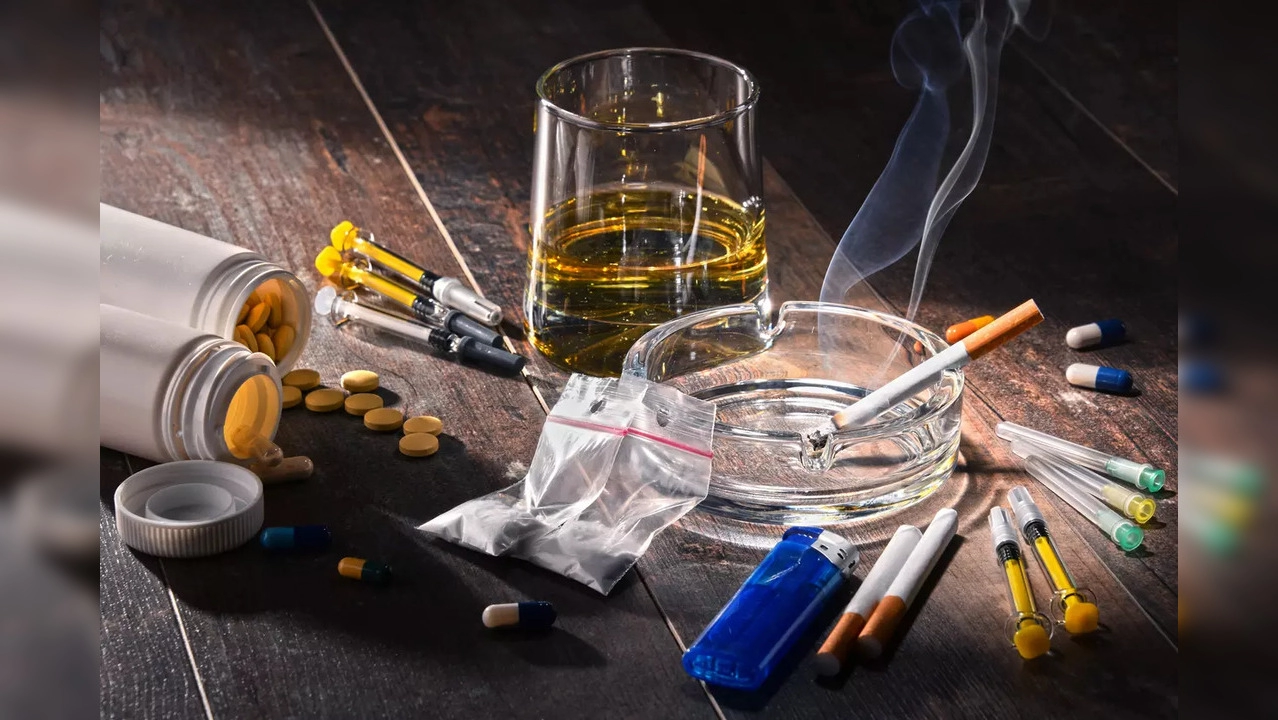
De-addiction
Addiction is a serious condition that affects millions of people worldwide, causing harm not only to individuals but also to families, communities, and society at large. De-addiction, the process of overcoming addiction, is a complex and often challenging journey that involves physical, psychological, and social aspects. This article explores the nature of addiction, its causes, the effects on individuals and society, and the steps involved in de-addiction, providing insights into treatment methods and the path to recovery.
What is Addiction?
Addiction is a chronic condition characterized by the compulsive need to engage in behaviors or consume substances despite knowing the negative consequences. These substances or behaviors can range from drugs and alcohol to gambling, gaming, and even certain foods. Addiction can alter brain function, particularly in areas related to reward, motivation, and decision-making.
Common forms of addiction include:
- Substance Addiction: Involves the misuse of drugs, alcohol, nicotine, or prescription medications.
- Behavioral Addiction: Includes compulsive behaviors such as gambling, internet use, or shopping.
Causes of Addiction
Addiction is influenced by various factors, which can differ for each individual. The primary causes include:
- Genetic Predisposition: Some individuals are more prone to addiction due to hereditary factors.
- Environmental Influences: Exposure to substance use, peer pressure, or traumatic events can trigger addictive behaviors.
- Psychological Factors: Mental health conditions like depression, anxiety, or stress often lead individuals to seek relief through addictive substances or behaviors.
- Social and Cultural Factors: Cultural acceptance of certain substances, like alcohol, can increase the likelihood of addiction, especially in social settings.
The Effects of Addiction
Addiction affects individuals in numerous ways, including:
- Physical Health:
Prolonged substance use can damage organs, weaken the immune system, and lead to chronic diseases like heart problems, liver damage, or respiratory issues. - Mental Health:
Addiction often worsens pre-existing mental health conditions, such as anxiety or depression, and can lead to new psychological disorders, including paranoia, hallucinations, and mood swings. - Relationships and Social Life:
Addiction can strain relationships with family and friends, leading to social isolation and a breakdown of trust. It may also result in financial difficulties, job loss, or legal problems. - Brain Function:
Addiction alters the brain’s reward system, making it increasingly difficult for individuals to experience pleasure from normal activities. This leads to increased substance use or compulsive behaviors in an attempt to recreate the initial “high.”
The De-addiction Process
De-addiction is a multi-step process that requires determination, support, and professional guidance. The key stages of de-addiction include:
- Acknowledging the Problem
The first and most critical step in overcoming addiction is recognizing that a problem exists. Many individuals remain in denial, making it difficult for them to seek help. - Detoxification (Detox)
Detox is the process of eliminating the addictive substance from the body. This stage may involve withdrawal symptoms, which can be severe depending on the substance and the extent of the addiction. Medical supervision is often necessary to ensure safety during detox. - Counseling and Therapy
Therapy is essential in addressing the psychological aspects of addiction. Several approaches are used, including:- Cognitive Behavioral Therapy (CBT): Helps individuals identify and change negative thought patterns and behaviors associated with addiction.
- Motivational Interviewing (MI): Focuses on encouraging individuals to find the motivation to change.
- Group Therapy: Involves support from others who are experiencing similar challenges, fostering a sense of community and shared recovery.
- Medication-Assisted Treatment (MAT)
In some cases, medication may be used to reduce withdrawal symptoms or control cravings. For example, methadone or buprenorphine may be prescribed to manage opioid addiction, while naltrexone is used for alcohol addiction. - Support Networks
Strong support from family, friends, and peer groups is crucial for sustained recovery. Programs like Alcoholics Anonymous (AA) or Narcotics Anonymous (NA) provide ongoing support through group meetings and shared experiences. - Behavioral Modification and Lifestyle Changes
Lasting recovery requires changes in behavior and lifestyle. This may involve avoiding environments or social circles associated with past substance use, finding new hobbies or interests, and building a healthy routine that supports sobriety. - Relapse Prevention
Relapse is common during the recovery process, but it doesn’t mean failure. Learning to cope with triggers and high-risk situations is vital. Ongoing therapy, support groups, and self-care practices can help prevent relapse.
Benefits of De-addiction
Improved Physical Health
Enhanced Mental Clarity and Emotional Well-being
Restored Relationships
Increased Productivity and Financial Stability
Spiritual Growth
Types of De-addiction Treatments
- Inpatient Rehabilitation
Inpatient rehab involves staying in a controlled environment where individuals receive intensive care, therapy, and medical supervision. It’s typically recommended for severe addictions. - Outpatient Programs
Outpatient treatment allows individuals to live at home while attending therapy sessions and group meetings. This option offers more flexibility and is often used for less severe cases or following inpatient care. - 12-Step Programs
Programs like Alcoholics Anonymous (AA) and Narcotics Anonymous (NA) follow a 12-step process to help individuals achieve sobriety. These programs emphasize personal accountability, spiritual growth, and peer support. - Holistic and Alternative Therapies
Some individuals benefit from alternative therapies that focus on treating the body, mind, and spirit. These therapies may include:- Yoga and Meditation: Help reduce stress, improve mental clarity, and increase emotional resilience.
- Acupuncture: Can alleviate withdrawal symptoms and reduce cravings.
- Nutritional Counseling: Aids in physical recovery by promoting a balanced diet to restore health.
The Importance of Family in De-addiction
Family involvement plays a crucial role in the de-addiction process. Loved ones can provide emotional support, encouragement, and accountability. Family therapy may also be necessary to rebuild trust and heal relationships that have been damaged by addiction.
